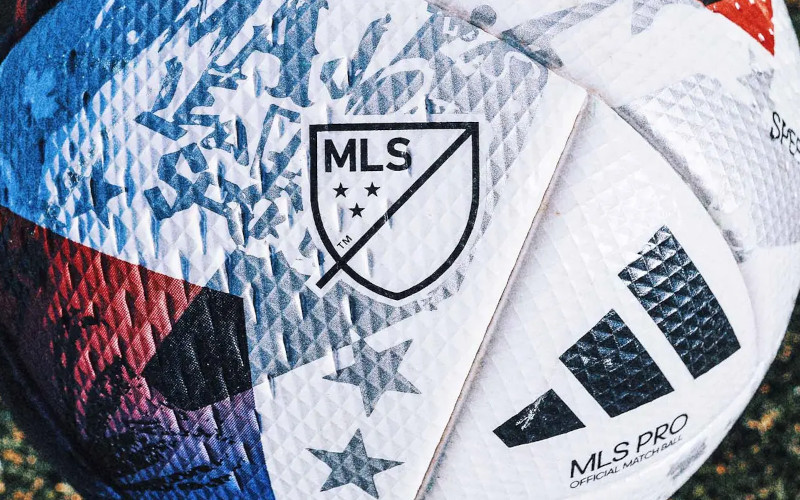Tips For Considering Injuries And Dismissals While Making Soccer Mls Predictions
The outcome of MLS matches can be affected by injuries and suspensions. Here are ten suggestions to assist you in taking into account these aspects when making predictions.
1. Be aware of reports of injuries regularly
Follow injury updates: Stay informed by referring to reliable sources that give the latest injury news. Before matchdays, clubs release information on injuries. Check these before making any predictions.
2. The Effects of Losing Players
Be aware of the absence of players suffering from injury or are suspended. Find out the significance the players have to the team. Losing your star striker and crucial defenders is likely to have a more significant impact on your team than losing any other player from your squad.
3. The Squad Depth
It is crucial to assess the depth of the team. While some teams can easily replace players when they’re disabled or injured, some teams have difficulty replacing the most important players. Examine the team’s quality and potential replacements.
4. Check for Multiple Absences
Take note of the consequences of multiple players being out.
5. Take into consideration the time of injury
Look at when the injuries occurred: If key players are out for a short time before a match and the team doesn’t have enough time to adjust. If they’ve been out for some time and the team is already be adapting.
6. The Returning Players
Be aware of the return of players. Sometimes players who were injured or suspended may improve a team’s performance. Consider if the player might need some time to get back in the game shape.
Review recent matches with no players
Review past performances in absence: Examine how the team performed during previous games without injured or suspended players. This will give you an insight into how they perform without them.
8. Think about the Psychological Impact
Take into consideration the team’s morale. The absence of a key player can affect team confidence, especially when they are the leaders on the field. This can cause a decline in performance.
9. Keep an eye on any last-minute changes
Be on the lookout to find out about late updates concerning injuries. These can happen just prior to a game or during training. Keep an eye out for breaking news to learn about late-night withdrawals.
10. Consider the opponent’s strengths
Examine how absences impact matches: Consider whether absence of players would have been key in countering the strengths of the opponent. The attack of the opponent might be more effective when, for instance the top defensive player is not present.
It is possible to make more accurate predictions by analyzing these variables. Have a look at the most popular Expert MLS Predictions Against The Spread for more recommendations including major league soccer cup, leagues cup tickets, tickets columbus crew, news lionel messi, soccer tonight, mls betting, tickets for mls cup final, tickets columbus crew, today prediction, inter miami lionel messi and more.

Soccer Mls Predications Can Be Improved By Studying The Team’s News As Well As Changes In Tactics.
The ability to make accurate MLS predications requires a thorough analysis of news about the team, including tactical and personnel changes. Here are ten strategies to analyze these elements effectively:
1. Team News – Stay updated with Team News
Follow the reliable sources.
2. Monitor Changes in Management
Examine the impact the new manager’s arrival will have: A new coach may bring new methods or changes to a team’s style of play. Early results under a new coach could be unpredictable. Therefore, you should consider the speed at which your team adjusts to the new tactics.
3. Learn Tactical Systems
The style of play and structure can determine the strategy they’ll take when facing different opposition.
4. Analyze the Tactical Changes of Particular Opponents
Look for match-specific tactical changes Teams frequently alter their strategies based on the strengths and weaknesses of their opponents. One team could choose to play a defensive style in comparison to an attacking team.
5. Examine the efficacy of recent tactical changes
Examine the outcomes of recent tactical changes. For instance, if a team changed its play style or formation recently, find out how successful these changes were. The steady improvement in performance is a good indicator that new tactics are effective.
6. Players’ roles in the latest tactics
Players’ roles can be affected by shifts in the tactical environment. Forwards could be required to fill a larger role, while a defensive midfielder could be assigned more tasks. Think about whether these changes are in line with the strengths of each player.
7. Take a look at the variety and depth of your team
Coaches frequently rotate players because of congested fixtures, or for tactical reasons. Knowing which players are most likely to begin and how it could impact the team’s cohesiveness is essential.
8. Factors in Training and Preparation
Take into consideration the time spent in preparation and the training goals Teams that spend greater preparation time may be better organized tactically. Find out if the coach emphasized certain tactical aspects before a game, such as set-pieces drills or defensive shapes.
9. Assess Tactical Flexibility
Gauge a team’s ability to adapt during games Certain teams and managers have a knack for changing strategies during games and switching formations or changing their approach depending on the progress of the game. Teams with a high level of tactical flexibility can recover quickly from setbacks, or capitalize on weaknesses in their opponents.
10. Be on the lookout for Experiments
If you want to know what teams are currently trying out, look for indicators. Teams might test their tactics or lineups towards the end of critical matches, particularly when they’ve already secured their playoff spot or have nothing to lose. This can have unexpected results.
Incorporating these ideas into your research, you’ll be better able to comprehend how team news and strategic changes affect MLS match outcomes, leading to more accurate forecasts. Take a look at the recommended Soccer for blog info including tips for betting today, mls soccer playoffs, final mls cup, mls rankings, leagues cup final, miami inter soccer, mls soccer final, best mls team, team of soccer, major league soccer results and more.

When Making Soccer Mls Predictions It Is Crucial To Take Into Account The External Conditions.
In order to make accurate MLS prediction, it is necessary to consider external factors. These elements can have a significant impact on the result of a match. Here are ten suggestions to help you evaluate the external environment effectively:
1. Study the weather conditions
Be sure to check the forecast for weather for extreme heat, rain, or cold can impact the style of play. For instance, wet weather could slow down the game or lead to more defensive errors, while temperatures that are hot can cause fatigue.
2. Consider Altitude
Be aware of high-altitude locations: Teams who are higher in the air like Colorado Rapids or the Colorado Rapids or Colorado Rockies have a distinct advantage. Visitors may find it hard to perform because of the thin air. Take this into consideration when forecasting the outcomes.
3. How to Evaluate it
MLS teams are often in multiple time zones. Long flights or time zone changes can cause fatigue and decrease the performance of your team.
4. Aspect of Pitch Conditions
Check the quality of the playing surface Check the quality of the playing surface: There are MLS teams play on artificial turf, while other teams use natural grass. Teams used to grass could struggle with turf. Poor pitch conditions may also cause more injuries or an effect on the ball’s control.
5. Be aware of the influence of the home crowd
Study the impact of support from fans. A raucous crowd at home can increase the team’s motivation and performance. A large and intimidating away crowd may make it difficult for the team that is visiting. Find teams with an especially large supporter base, either at home or away.
6. Stadium size and atmosphere should be taken into consideration
Analyze the atmosphere of different stadiums. Some have a raucous atmosphere due to their size or layout that can affect referees and players. Teams can behave differently in a huge, noisy stadium than in a smaller and quieter venue.
7. Think about the Time of Day
Matches played in the evening are more relaxed than those that are played during the day. Additionally, matches at unusual time frames could disrupt the team’s routine particularly if they are unaccustomed to playing at that time.
Review the Performance History of the Performer in Similar Conditions
Examine how teams have been performing in similar situations If the team has struggled historically in hot temperatures or on artificial turf or at a certain altitude, it could be a red flag for forecasting their performance in the coming similar conditions.
9. International Breaks & National Team Duty
Be aware of the timeframe for international breaks: Teams missing important players due to international obligations may be unable to perform as expected. In addition, players returning to their clubs following international matches may be exhausted or may not have had the time to prepare.
10. Assessing the Impact of External Events
Consider non-sporting events around the game: External events such as a local event, holidays, political tensions or a pandemic could affect team attendance, focus and the overall gameday atmosphere. These events may cause distraction for players, or alter the number of spectators.
By carefully factoring in these external variables to gain a greater understanding of the various elements that could influence MLS matches, leading to more accurate predictions.

